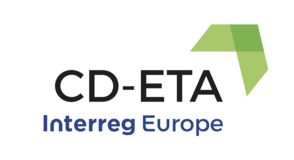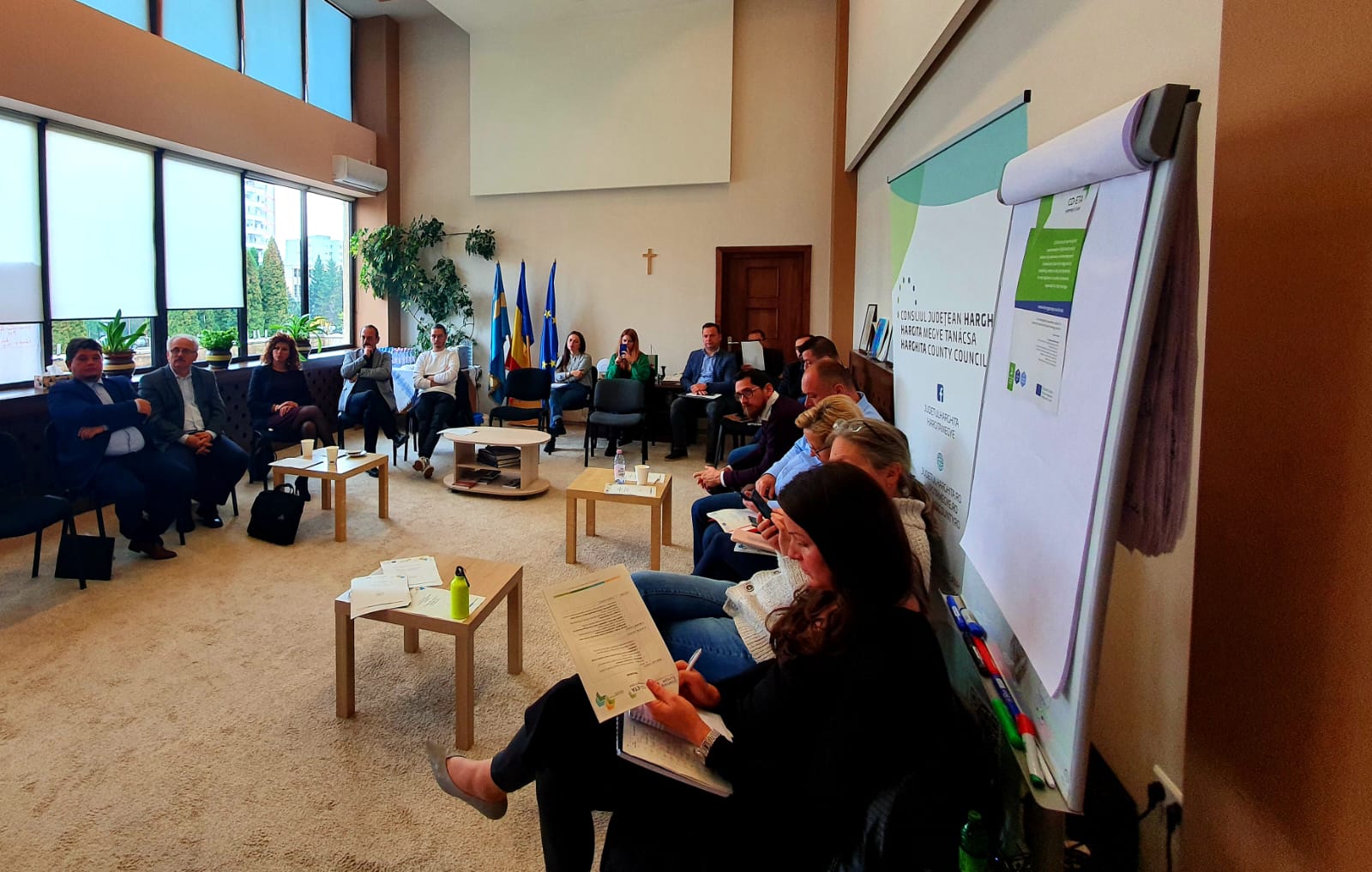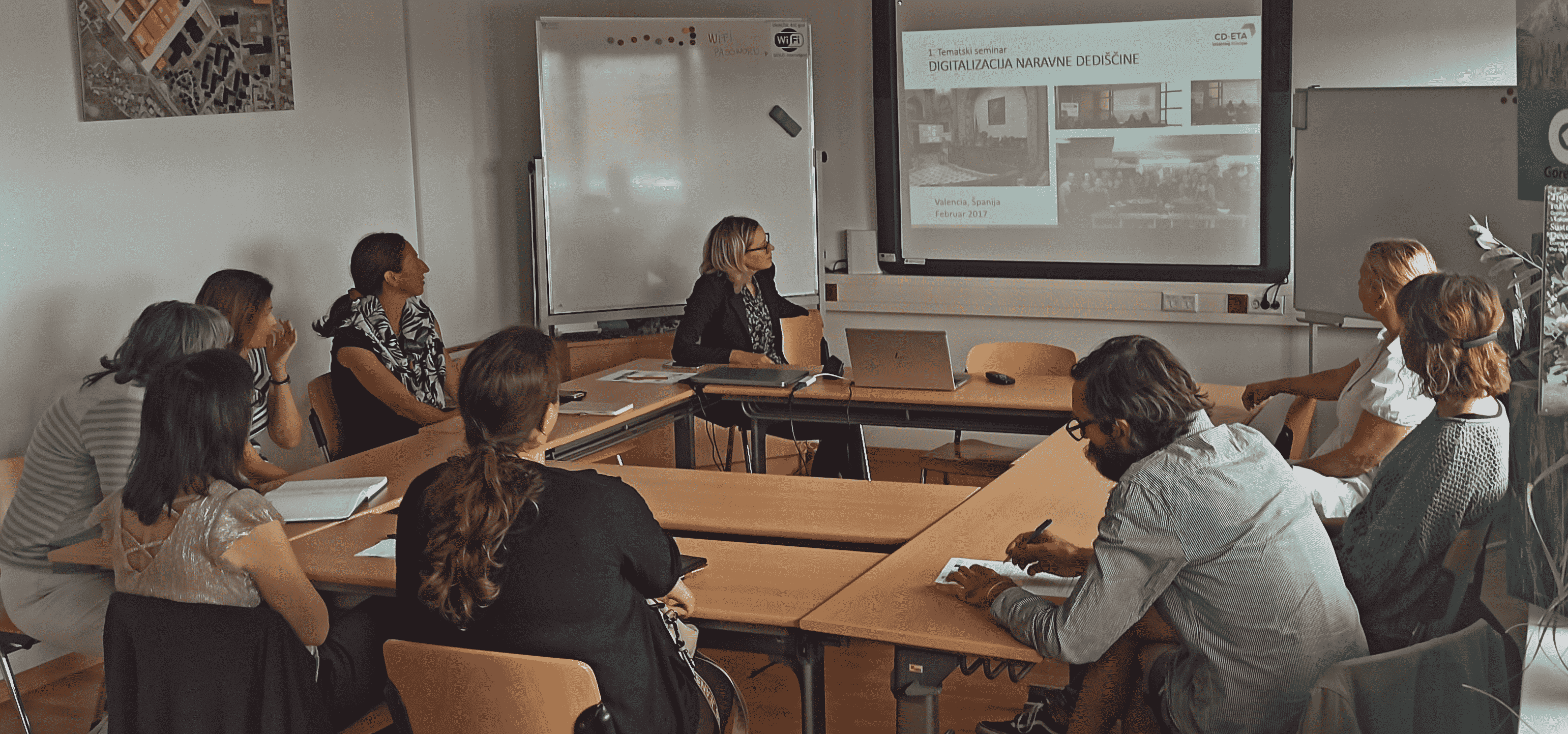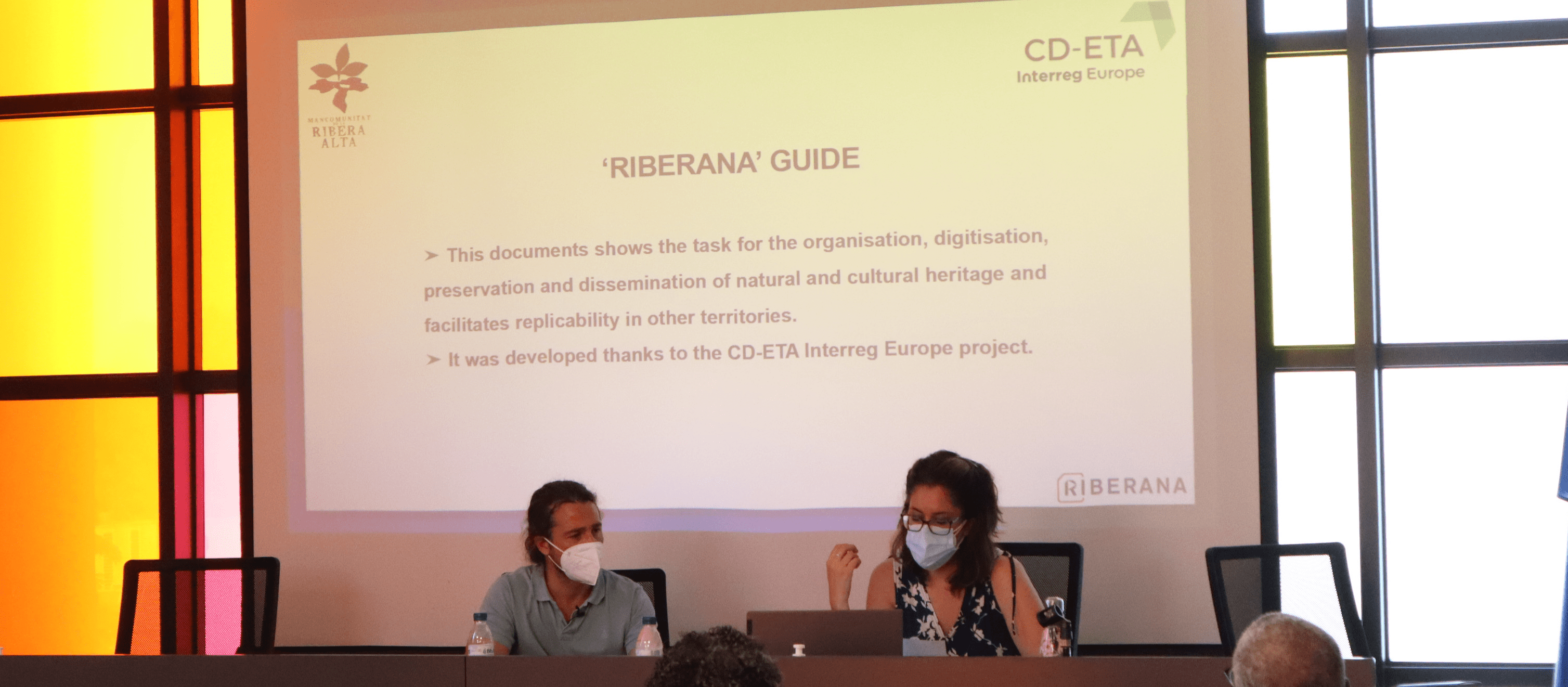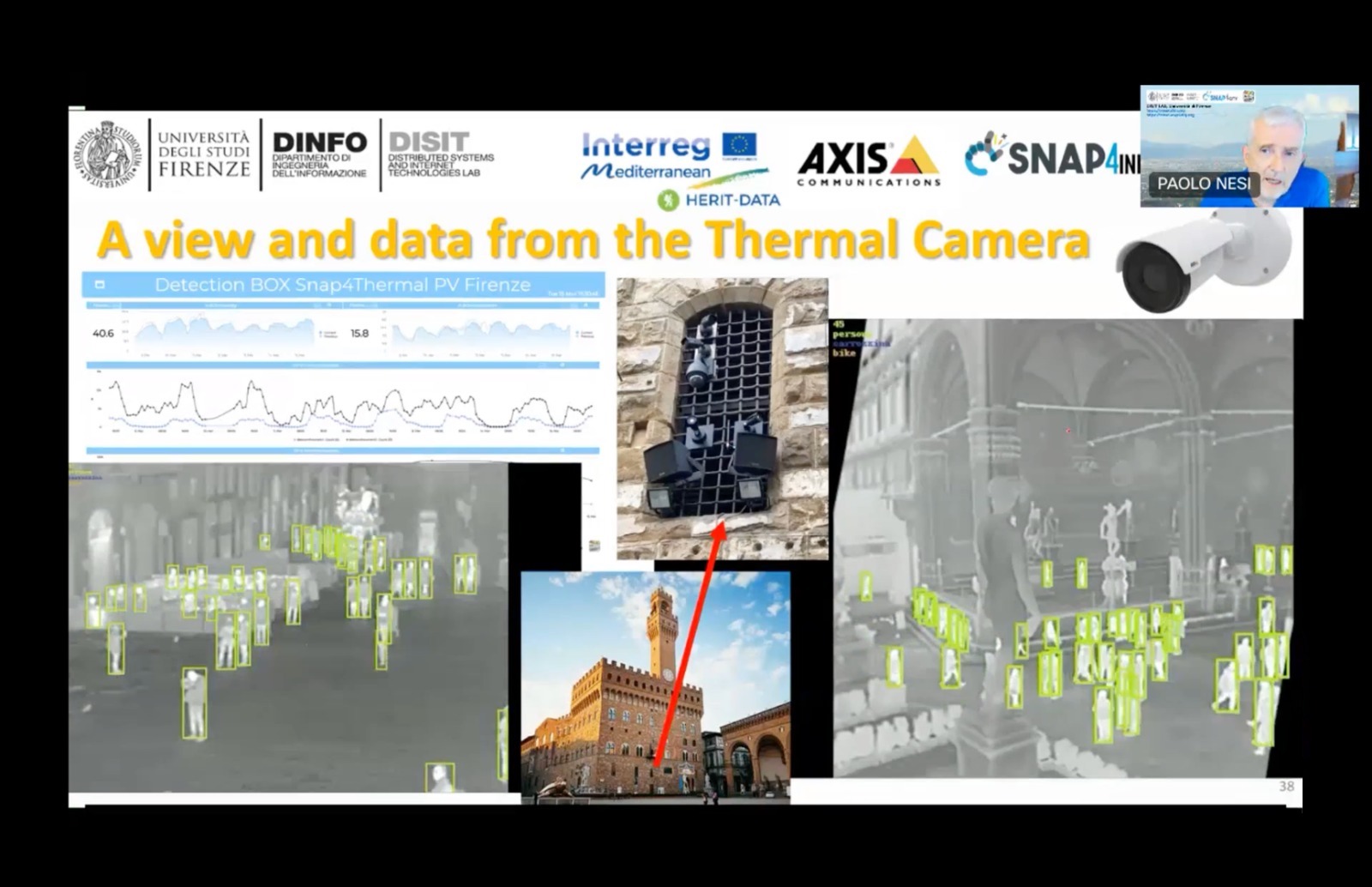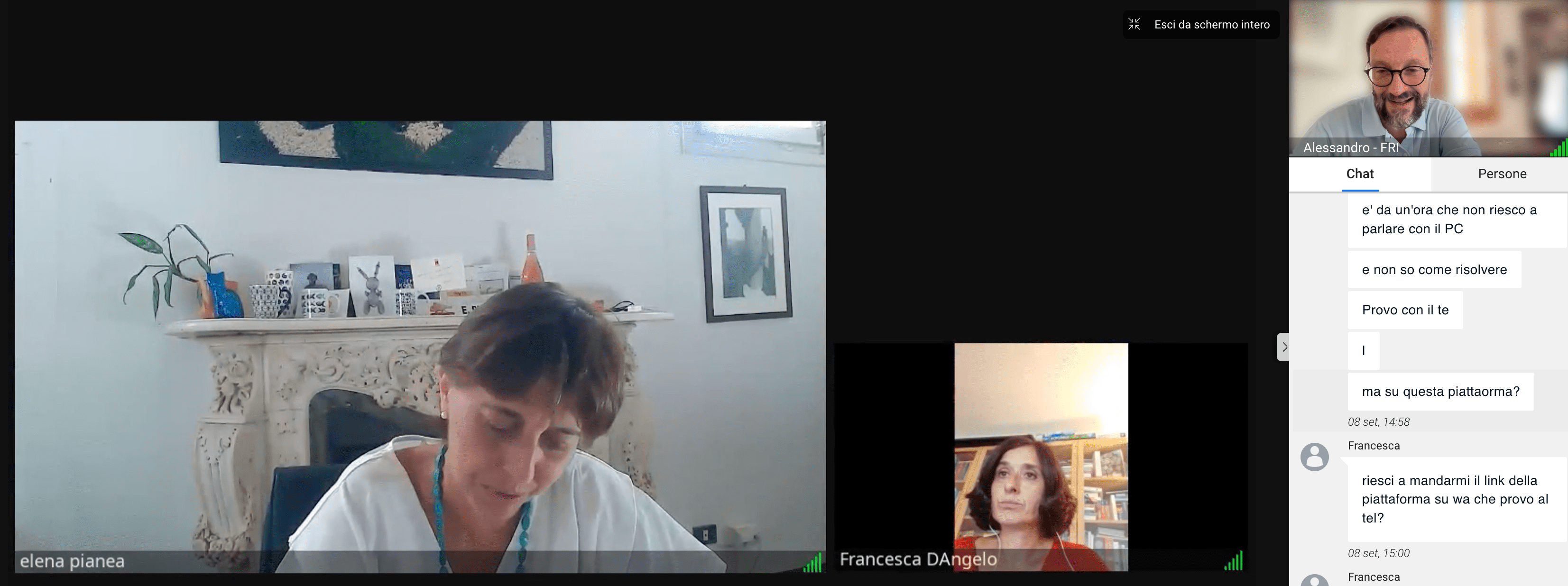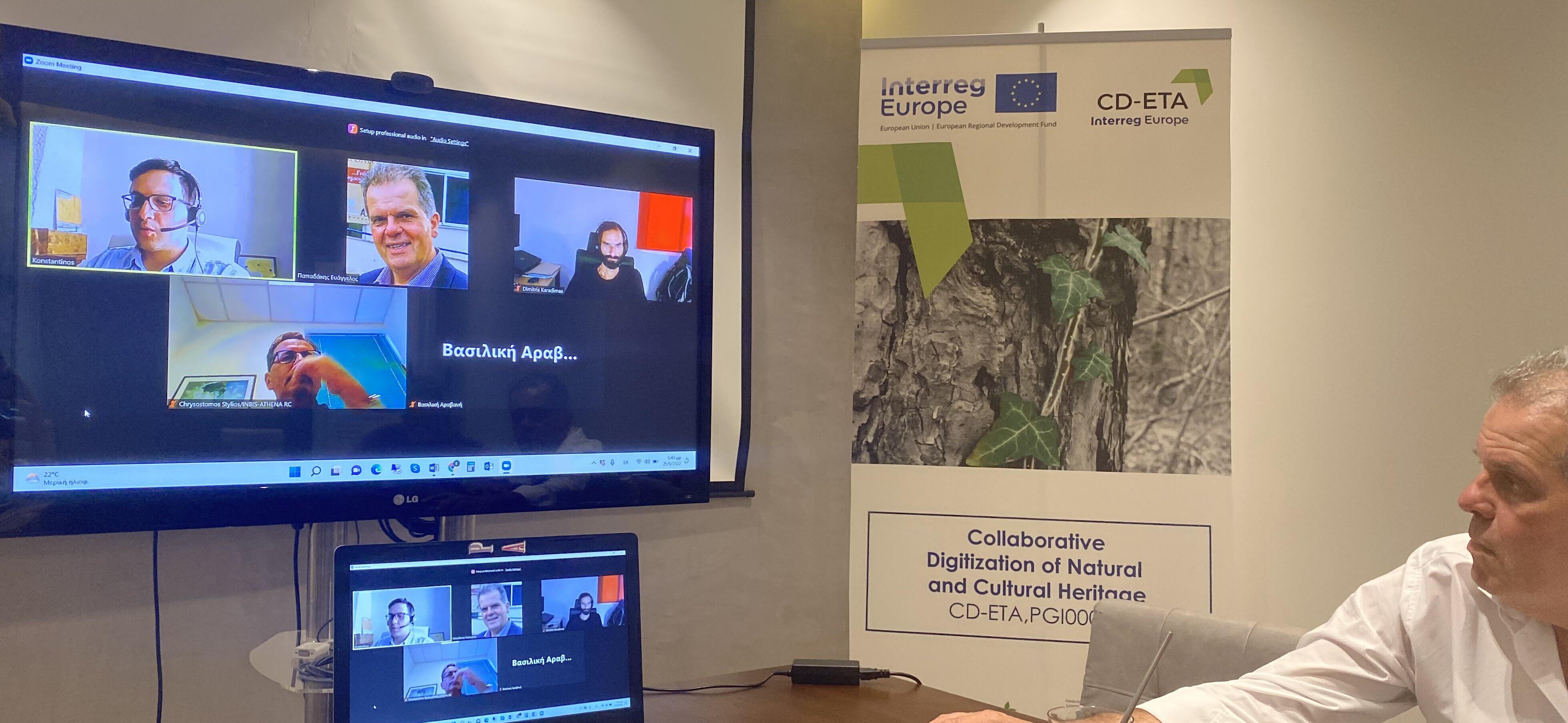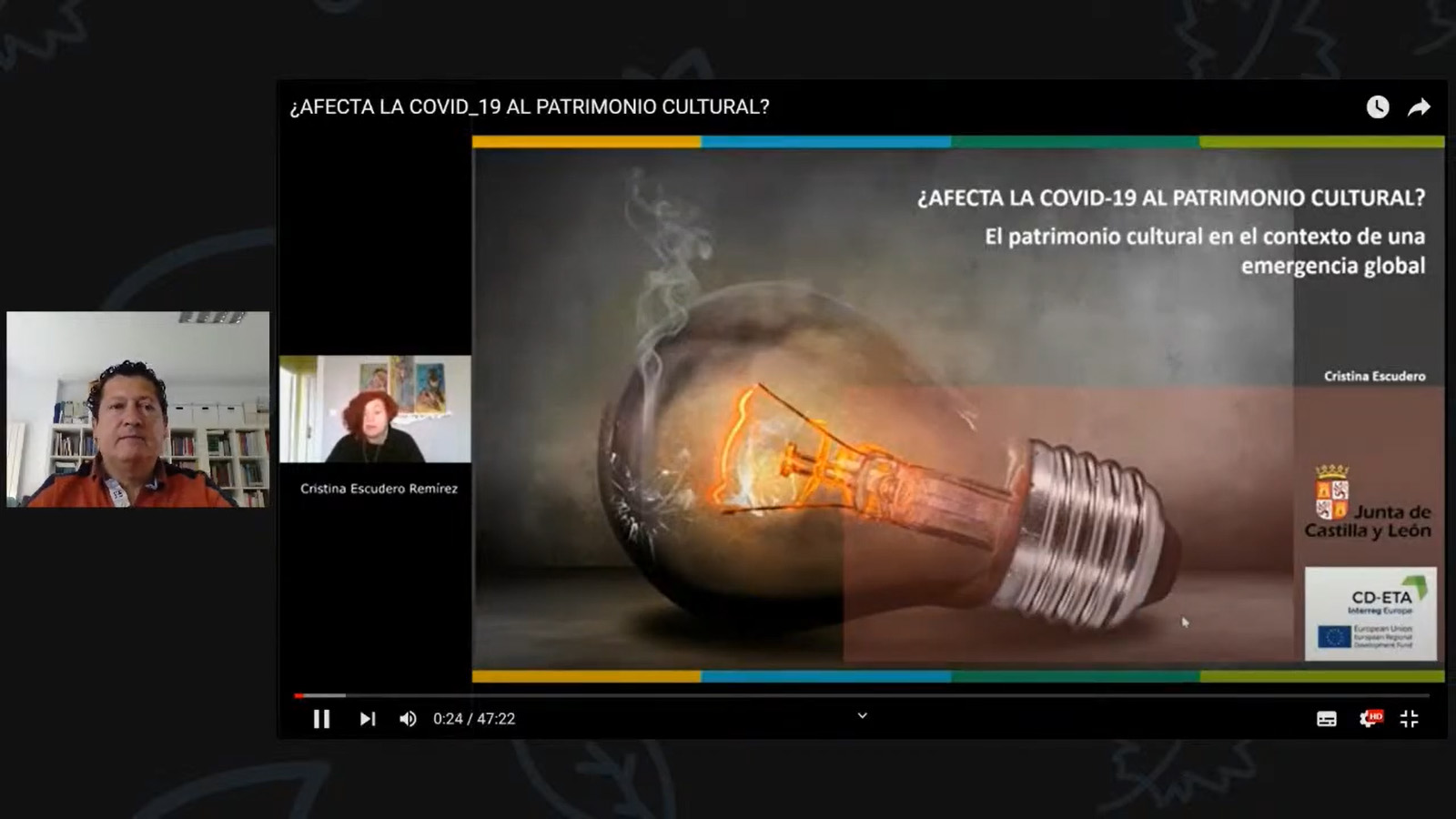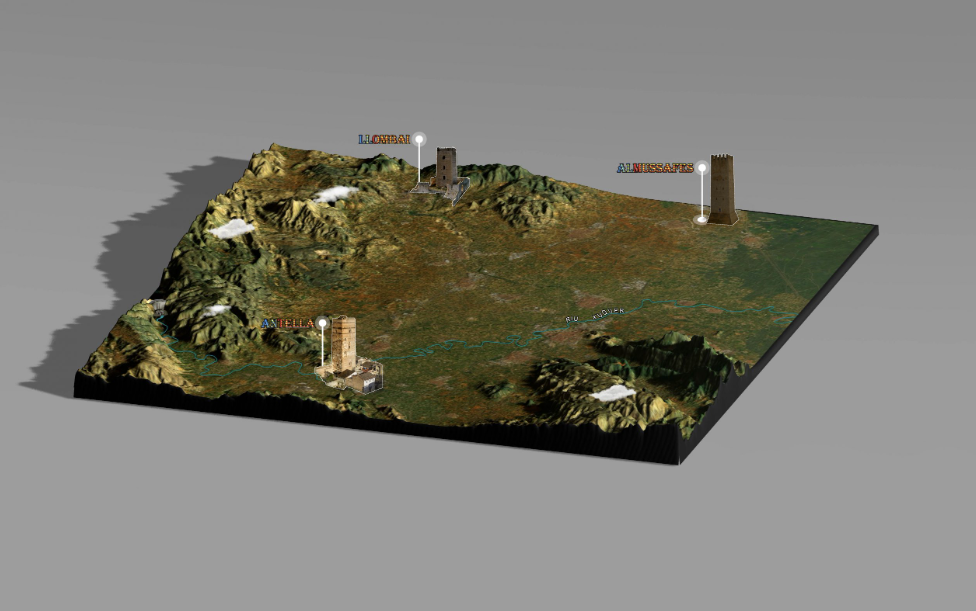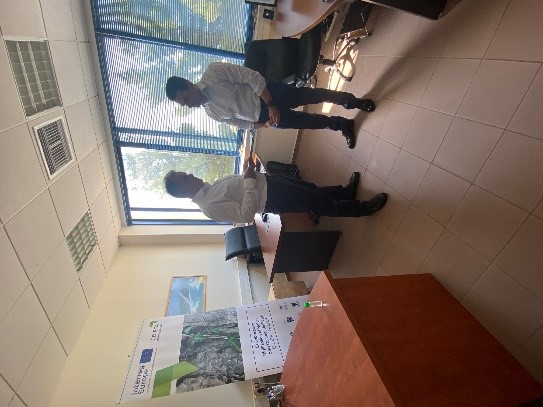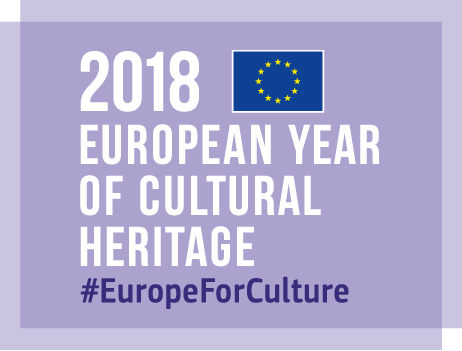50 persons participated at the meeting – the representatives of the local stakeholders, the lecturers, experts, press representatives, project team members, and staff of the institution.
During the meeting the participants prepared the next thematic seminar which will be held in October in Slovenia, and on which will be discussed the digitization of intellectual values. At the meeting was also presented Harghita County Council's efforts to digitize natural values, as well as the experiences from the second thematic seminar in Florence about the digitization of the value of galleries and museums.
Mrs. Ferencz Angéla, the manager of the Harghita County Cultural Center's lectured on Cultural Heritage and Digitization. She mentioned that the archives had earlier attempts to capture values, but there was no possibility of duplication in some areas, and the advantage of digitization is that the values can be duplicated and shared. We can see that there have been many local initiatives for digitization for years, but they are not connected. She mentioned the 2001 Lund Action Plan when, during the EU Presidency in Sweden the European Union decided to digitize cultural goods at EU level, and also talked about the Minerva workgroup in Italy and its initiative which allows a successful digitization made step by step. We are in a lucky position in Harghita County, because we have started the activity sooner, thanks to the Hungarian culture, but in Romania there is a lag behind the other EU countries. There are still many white spots, but the number of tasks is increasing in order to bring back the lag.
Mr. Salló Szilárd, ethnographer, working at Harghita County Tradition Resource Center, lectured with the title "Treasury of Harghita county - Digitizing the spiritual values of Harghita county" and was pleased to attend for the third time as a lecturer in the project, as he had previously presented the traditional country houses, and then at the Florence meeting the results of the museums digitization.
This time he talked mainly about the achievements in ethnography and highlighted what constitutes the concept of intellectual heritage. On the UNESCO website there is a precise definition of the oral genres. Research has revealed that there are relatively few online databases available, worth mentioning only the digital ballad record made between 2014-2015 and contains 1617 ballads, the music and vocals collections of Zoltán Kallós, the digital folk music and folk music collection, as well as databases of folk crafts, like the Artera Association`s homepage and the www.mestersegek.ro website. In connection with folk crafts, every year they organize photo camps, their materials are edited in catalogs, and they are organizing presentations of folk crafts for students in order to pass on knowledge to future generations. They are also trying to convey the values through periodicals as well, mentioning here the „Örökségünk” publication. In conclusion we can see that digitization in Harghita County is done in a mosaic manner, and it would be good to unite it at county level.
Mr. Rangyák József, the literary secretary of the Harghita National Szekler Folk Ensemble presented about the "Frozen archive". He pointed out how good is the situation in Slovenia is in this area, but in Romania there is still little support for these initiatives. He explained how the regional archive was created in the Carpathian Basin, which resulted in thousands of photos and video material being digitized. The question is whether there will be sufficient financial resources for further operation and will there be human resources to continue this as the concept of volunteering has not yet become popular enough. The person doing digitization tasks does not have to select, categorization it's a matter of a professionals, and this means much more work than digitization itself. It is also important to clarify what is to be stored on the Internet and what is to be locked and accessible only to professionals, and it is an important question also what kind of tools are used for storage. Their previously created archive was frozen in 2010, in order to protect it.
Mr. Ciubîcă Doru Viorel, the president of Ardealul Cultural Center in Toplita, spoke about "Intellectual Heritage - the Opportunities of Local Communities" and shared the experiences in the area around Toplita. Mentioned that they are still at the beginning of the process and do not have too much experience in this area, but they feel that such a programs are necessary, considering the multiculturalism of the county, as we get mutual benefits from knowing each other's cultural values. They are currently implementing a project in order to popularize the churches and ecclesiastical values from the northern part of the county. He believes that there is a need for a change in mentality in order to have good results.
